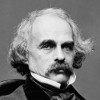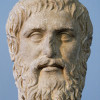“ he cannot recognise an honest man, because he has no pattern of honesty in himself; at the same time, as the bad are more numerous than the good, and he meets with them oftener, he thinks himself, and is by others thought to be, rather wise than foolish. ”
Plato, The Republic. copy citation
| Author | Plato |
|---|---|
| Source | The Republic |
| Topic | honesty time |
| Date | |
| Language | English |
| Reference | |
| Note | Translated by Benjamin Jowett |
| Weblink | http://www.gutenberg.org/files/1497/1497-h/1497-h.htm |
Context
“But the cunning and suspicious nature of which we spoke,—he who has committed many crimes, and fancies himself to be a master in wickedness, when he is amongst his fellows, is wonderful in the precautions which he takes, because he judges of them by himself: but when he gets into the company of men of virtue, who have the experience of age, he appears to be a fool again, owing to his unseasonable suspicions; he cannot recognise an honest man, because he has no pattern of honesty in himself; at the same time, as the bad are more numerous than the good, and he meets with them oftener, he thinks himself, and is by others thought to be, rather wise than foolish.
Most true, he said.
Then the good and wise judge whom we are seeking is not this man, but the other; for vice cannot know virtue too, but a virtuous nature, educated by time, will acquire a knowledge both of virtue and vice:”
source



